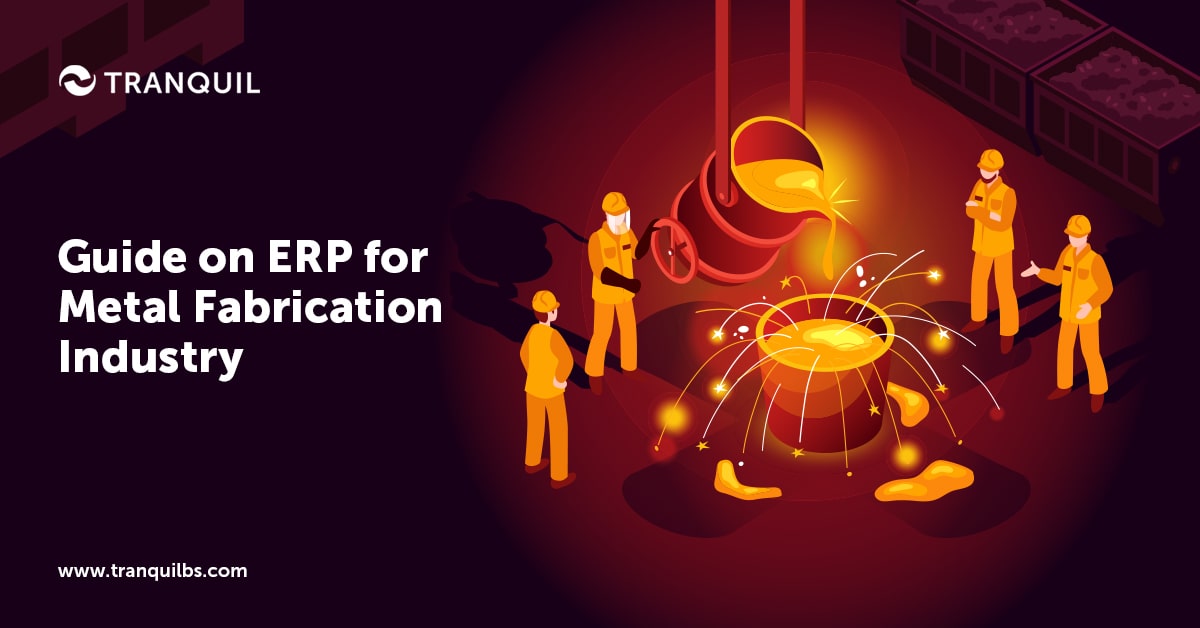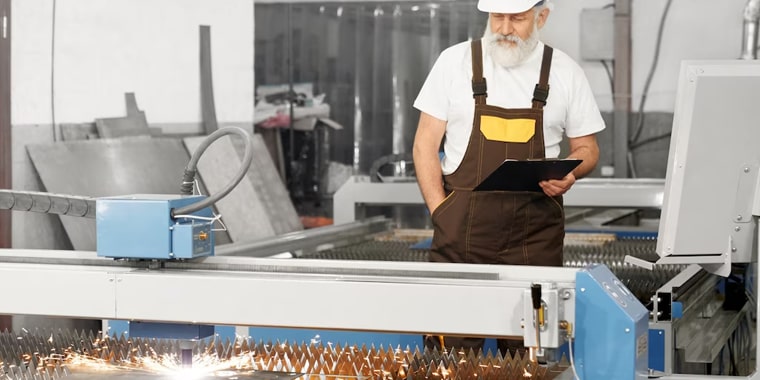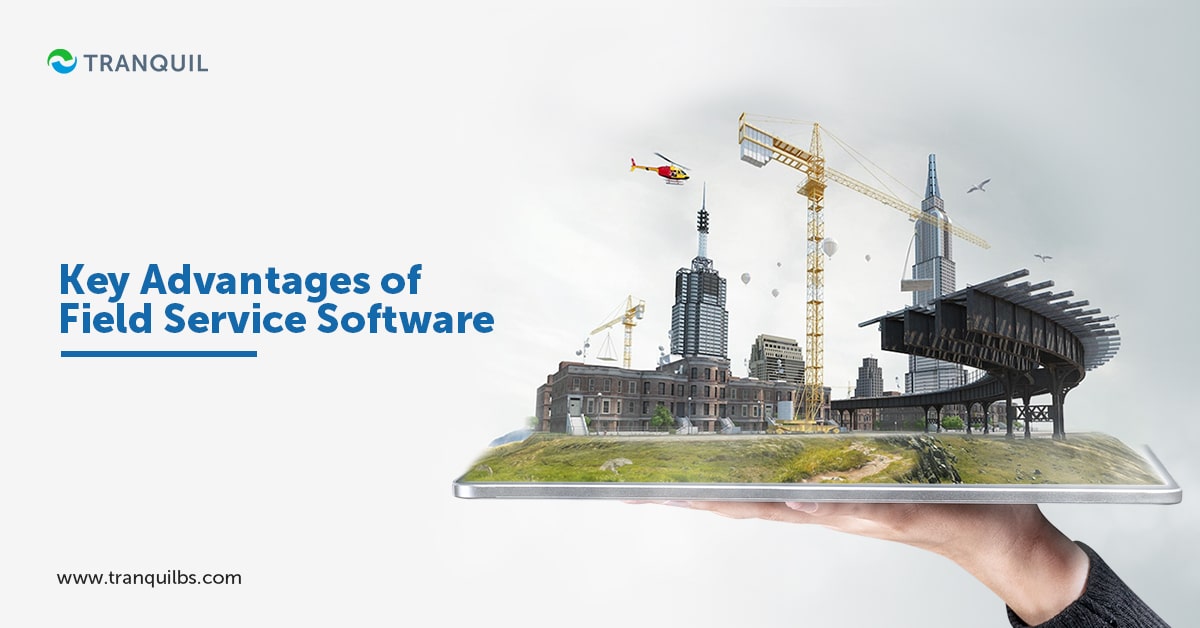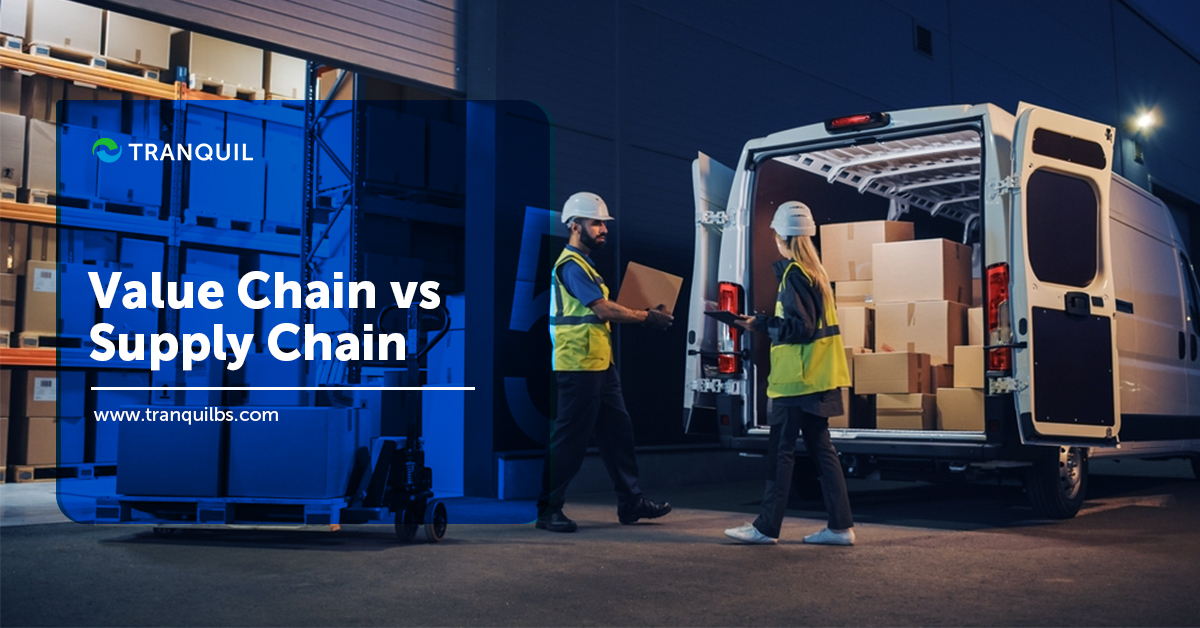
Guide on ERP for Metal Fabrication Industry
The metal fabrication industry is based on precision; to fulfil consumer demands, the skills of the workforce, production schedules, and availability of materials have got to align properly.
While this itself is daunting, there are more hurdles that businesses in the industry face.
Prices of raw materials rise constantly, demand fluctuates widely, and there is an acute shortage of skilled labor.
Combined together, all these make operating a fabrication business profitably is very challenging; margins are coming down, and operational performance is being scrutinized like never before.
Obviously, you cannot control external forces that push down your margins, but you certainly can improve your operations, streamlining them and making them more efficient and profitable.
Thanks to ERP software for metal fabrication, manufacturers can do all this through better planning, implementing solutions efficiently, shortening their time to market, decreasing wastage, and cutting costs.
ALSO READ: Benefits of ERP for Steel Industry
What Is a Metal Fabrication ERP?

Where margins are tight and specifications are very specific, you have to pay careful attention to detail.
ERP for fabrication industry helps to handle and optimize everyday operations, by leveraging data to get insights that will ensure output that is consistent and of good quality.
You can see a plethora of generic ERP solutions in the market with standardized features, but industry-specific ERP software for fabricators is designed to meet your unique needs.
The inbuilt features facilitate capacity management, supply chain strengthening, and the streamlining of shop floor operations.
Often in metal fabrication, you may be required to go back and forth between measurement units to reduce wastage while fulfilling customer needs.
This calculation can be performed automatically when you choose metal fabrication ERP; it helps you to make the most of your resources.
What Are the Benefits of Using Metal Fabrication Software?

There are numerous steps involved in metal fabrication, which means that there are several stages at which problems and challenges can crop up; with margins already low, this can prove extremely frustrating.
With metal fabrication ERP, manufacturers can combine and automate important processes end to end: from quotes through inventory management to production.
Here are the main benefits it offers:
- Boosting output by pushing projects from initiation and quoting phases up to the production line so that the finished product can be delivered to the customer speedily.
- Precise quote generation that facilitates making delivery commitments to customers
- Eliminates redundant processes and siloed operations to speed up time to market
- Offers thorough visibility into business operations and data in real-time to all relevant employees, boosting agility.
- Minimizes machinery downtime and groups jobs based on tooling and nesting requirements to improve the efficiency of equipment
- Helps avoid delays through minimizing disruptions in supply chain by studying the impact of material lead times and availability on production schedules
- Ensures holding of optimal inventory to avoid stockouts and overstocking, eliminating the possibility of dead stock or cessation of production
- Automates repetitive tasks and freeing employees to concentrate on executing value-adding tasks instead
- Enables quality control and compliance with regulations through dedicated traceability throughout the supply chain, production, and distribution in case there are product recalls
- Helps you meet differing consumer demands over how finished products are built and delivered, especially if there are custom orders that evolve in the course of production.
Features To Look for in Metal Fabrication ERP

ERP software has multifarious and far-reaching benefits, but a generic ERP may not have everything that you really need.
When shopping for ERP for your metal fabrication business, check for these features:
1. Enquiry, Estimations & Quotations
It would be ideal if your ERP can take care of these pre-sales activities; allow you to record enquiries, create estimates of bills of materials for each enquiry, and draw up detailed quotations based on the estimates.
This will save you significant time that is otherwise taken to manually draw up quotes and estimates.
Some systems will allow you to save historical records of lost quotations along with reasons for studying them in the future.
2. Order Management
Your ERP solution should be able to manage all activities related to orders and optimize the entire process.
You should be able to track orders, and activities related to production, supply, and delivery in a centralized order management system.
A reliable ERP system should allow you to create categories for orders, handle delivery schedules, maintain details of shipments, make sure documentation is correct, and record terms and conditions for payments centrally.
3. Bill of Materials
You need this feature if you give work out on sub-contracts to other companies.
Inbuilt BOM software enables you to describe the materials, components, and subassemblies for all products to employees, vendors, and other stakeholders.
ALSO READ: Guide on How Do ERP Systems Work
4. Engineering Change Management
Customers may request changes in design; there could be some changes in the bill of materials in a current manufacturing order; to accommodate these changes, you need change management.
A reliable fabrication ERP will be able to identify areas where change management is needed and offer features to manage this process efficiently.
BOM revisions, procurement and manufacturing processes should be integrated and configured to reject items, or rework components that are changed.
5. Third-Party Nesting Solutions Integration
While not absolutely essential it would be good to be able to integrate your fabrication ERP with third-party nesting software.
This software helps in fitting several patterns in one sheet and minimize wastage.
ALSO READ: Critical Factors for a Successful ERP Implementation
6. Routing & Activity Planning
Fabrication orders are likely to have separate routes and activity needs as they are mostly customized.
Reliable fabrication ERP helps to describe the route and activity at the level of BOM.
Each order is likely to have a separate requirement, and ERP software can help define the labor, time, input, and output required for different activities depending on the specific requirement.
7. Workload Scheduling
This feature will help you in planning production depending on the capacity of your equipment and availability of raw materials in real-time.
It will help you to adapt your schedule in case some changes happen in the course of production.
ALSO READ: Important ERP Modules and Functions
8. Raw Materials
Usually raw materials a company procures are measured in tons or kilograms; but in the fabrication industry materials are consumed in tiny quantities – milligrams or millimeters, making unit conversion crucial.
Track material consumption of each project, stock details per weight or length x breadth, managing scrap, and so on.
9. Material Resource Planning
This feature helps in the calculation of the exact material requirements for wastage reduction and expense management.
This data can be then integrated with data like the capacity of the machine, availability of employees, etc. so that your operations can be seamless.
ALSO READ: What is Employee Turnover?
10. Work Order & Job Cards
Another desirable feature in metal fabrication ERP is provision of job cards and work orders for activities related to production.
This helps in laying out the resources, materials, and processes required, and the timelines available to execute jobs.
They can be assigned to your own employees or contracted workers as well.
Job cards are invaluable in controlling the consumption of materials and for accurate processing of contractors’ bills.
11. Production Reporting & Inspection
This feature helps is tracking the actual production on the shop floor and may offer choices of keeping either detailed records or summaries of inspection and production activities.
It helps in identifying the present status of the production, hurdles if any, and identify the problematic areas.
ALSO READ: Benefits of Implementing ERP for Oil and Gas Industry
12. Dispatch & Invoicing
Your metal fabrication ERP should help you streamline dispatch and invoicing activities, like the generation of packing lists, getting checklists ready for dispatch documentation, preparing invoices, and so on.
Finding the Right Metal Fabrication Software for Your Business

When you select ERP software capable of handling specific metal fabrication business activities, you will be able to run your business much more efficiently.
While it is good to zero in on ERP designed specifically for metal fabrication business, you must consider a few other factors before you make your final decision.
You have to reflect if the solution is future-ready; is it scalable and capable of handling the needs of a growing business?
Think about how you will use the software on a daily basis to improve efficiency and productivity.
ALSO READ: Advantages of ERP to Automotive Businesses
Suppose you have businesses at multiple sites, remote workers, sub-contractors, partners, and so on, a cloud-based solution like Tranquil will be ideal for you.
Your teams will be able to access the data and features whenever they have a need to.
Moreover, a cloud-based ERP is quicker and less expensive as you don’t require extra hardware to be installed.
Another factor to consider is whether your software provider understands what you are doing – your business goals, requirements, your products, what you want to achieve, and more.
Check their track record in general, then specifically manufacturing and metal fabrication, and read or listen to reviews left by earlier customers regarding the efficiency of their software and the quality of tech support – also, how quickly they respond.
Verify if the ERP solution can be implemented as is, or necessitates complicated and expensive customization, and how well it can be integrated with some of your necessary systems.
You must also ensure that the software is easily accessible for your team but robust enough to keep delivering value.
ALSO READ: ERP Trends
Conclusion
At Tranquil, we have in-depth industry knowledge and experience, and can help you to extract maximum value in the way you implement and utilize the ERP system.
We can give you company-wide visibility and improved control over your business, and increase efficiency across the company.
It helps you plan better, and have a greater understanding of costs and profits for specific jobs, achieving maximum ROI.
Tranquil has a proven track record working with all kinds of businesses and manufacturers, helping them streamline operations, reduce costs, save time, and boost profitability significantly. It’s a cloud-based ERP solution that delivers everything you need to operate your business smoothly. It is flexible, affordable, and user-friendly. Do book a demo to know more about how our software can help your metal fabrication business. Our representatives will walk you through the solution, explaining each feature in detail, and will be happy to answer any query you may have.



